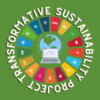The long history of Egypt, dating back to 3100 BC, is rich in culture and tradition. Home to one of the world’s first written languages, Egypt has been defined by technological innovation and complex systems of government, religion, and society. The 20th and 21st centuries in Egypt have been a dynamic time of political and social change and economic development and challenges. Following the pan-Arabism and reforms of President Gamal Abdel Nasser in the middle of the 20th century through the political turmoil and economic decline after the Six-Day War in the late 1960s to the more recent Arab Spring popular uprisings, Egypt’s political, economic, and social landscapes are in flux.

In 2016, Egypt announced its Vision 2030, an ambitious national development plan that “cultivat[es] a prosperity path through economic and social justice, and reviv[es] the role of Egypt in regional leadership.” Focusing on the three sustainability pillars—Society, Environment, and Economy – this plan aligns with the United Nations (UN) Sustainable Development Goals (SDGs), an internationally agreed-upon roadmap for global solutions to address and foster sustainability. Egypt’s Vision 2030 seeks to address current sustainability challenges, including:
- Poverty and Unemployment: According to the World Bank, 31% of Egyptians live below the national poverty line. High levels of unemployment, particularly among young people and women, and a lack of access to basic services such as healthcare and education, fuel poverty and inequality
- Gender Inequality: Significant challenges with gender inequality include discrimination in the workplace, limited access to education and healthcare for women and girls, underrepresentation in government and policy-making, and a high rate of violence against women. Despite progress in recent years, women in Egypt still face significant barriers to achieving equality with men due to cultural and societal norms, as well as a lack of legal protections.
- Environmental Degradation: The Nile River is a vital source of water and agriculture for Egypt, but its water quality and availability have been affected by pollution, overuse, and climate change. Additionally, Egypt is facing desertification, land degradation, and loss of biodiversity.
- Human Rights and Good Governance: Egypt has been criticized for its human rights record, particularly with regards to the treatment and suppression of political dissidents and minority groups, who often face arbitrary detention and violence. In addition, the government has been criticized for its lack of transparency and accountability.





